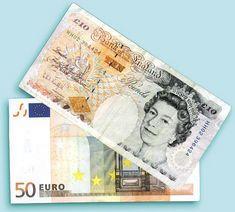
As sterling plunged to new lows against the euro this week, importers were left counting the cost.
The Bank of England’s inflation report and talk of the UK entering recession this year prompted the slide to a 22-month low against the dollar and a fall to as low as the €1.22 mark on Wednesday. The low level of sterling on the exchange markets is making it a less attractive market for more speculative senders.
And for importers and packers, the squeeze is being felt. They have to pay their suppliers more for produce from the euro zone while their customers are unwilling to budge on the sterling price at which they buy from the hard-pushed packers.
“We are buying forward as are other importers and have already bought for September and October,” said Peter Davis, managing director of Davis (Louth) Ltd. “But nothing is guaranteed and the exchange rate situation is something we will have to live with.”
Davis also exports produce from the UK. “We have never done so much export as we are now,” he said. But it is a double-edged sword as with imports becoming more expensive, the UK market is demanding its own domestic production as much as ever.



